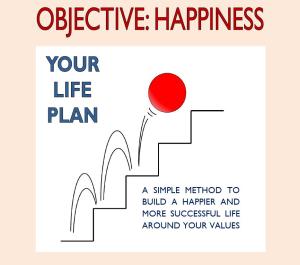This is a prerequisite if you want to grow and be happy in life, as well personally as professionally.
Although it would sound like an easy thing to achieve, too many people seem to have difficulties getting there. Many internal and external reasons can explain that, but it is always possible to change for the best.

If you are not a superhero, it is OK
Why is being yourself so important?
Quite obviously, if you are not yourself, then who are you? Just this question makes clear that it will difficult to know who you are. If you think you are some of your role model, realize that s/he probably was him/herself, and that is why they got in that position of role model.
Moreover, if you are playing being someone else (like the example on the right), you will miss the opportunity to genuinely improve yourself and achieve higher fulfillment in life.
How can you be yourself?
This can take more or less time between people to find out, but it is possible and not that complicated. All you need is to have people you trust to give you candid feedback. You have to understand that even the most popular people are not perfect and that they have their insecurities as well. An easy way of discovering yourself it to find what you like most and what you like less in life. Capitalize on your assets and limit your liabilities. Accept your limitations and enjoy your talents! After all no one is talented in everything, and all you need to be happier is to do what you do best and like it. To find out who you are and to be yourself, you are just going to need to determine how much will, dare, capability and knowledge you have.
Deal with other people’s judgment!
Unfortunately, everyone has an opinion about other people, and most of the time it is based on very partial information. Most disputes are the result of a lack of communication, not of knowing each other well. I often tell the same joke about how lucky I have been in life to meet only great people who unfortunately for them all have seemed to be surrounded by idiots.
Realize that you cannot please everyone, and whatever you may do and whoever you maybe, there always will be someone out there to criticize you. The only feedback that counts is the one from people who really know you well, and that you trust enough to give you their opinion. Such an exercise is not about passing or failing, but it is about self-knowledge and possibilities of improvement. True friends will not shoot you down. In this exercise, they will tell you what you could be better at.
Also realize that it is better to get some bad feedback on who you really are than on whom you trying to be, because in that case, the information is useful for you.
If you find difficult to accept yourself, you need to consider two things. First, you are not the only person who feels that way; a large of majority of people tends to underestimate themselves. Secondly, most people have much more potential than they think; all they need is to take more chances. You need to show the world what you can.
Finally, always make sure that you are the one deciding for yourself. Peer pressure and your social environment, not even to mention marketing and the media have a very powerful impact on how many people think they should be. It is not to them to decide about that. Dare to challenge them. Also, realize that people who are themselves always attract compatible people, thus making their lives more interesting and fulfilling.
Copyright 2009 The Happy Future Group Consulting Ltd.



 Posted by Christophe Pelletier
Posted by Christophe Pelletier  In sports, everybody knows the importance of having a group of talented people who can play together harmoniously for the interest of the group. Not only must the team members be good at their specialty, but they also must have the understanding of the other players’ needs and skills, so that they can create for them opportunities to score. Moreover, everybody understands in sports the crucial role of the coach to create the proper interaction to achieve success. Terms as goals, help and support are common.
In sports, everybody knows the importance of having a group of talented people who can play together harmoniously for the interest of the group. Not only must the team members be good at their specialty, but they also must have the understanding of the other players’ needs and skills, so that they can create for them opportunities to score. Moreover, everybody understands in sports the crucial role of the coach to create the proper interaction to achieve success. Terms as goals, help and support are common. So, how to achieve superior performance and build cohesive teams across departments? Actually, it is rather simple, at least in theory. Just copy what they do in sports. They draw charts about the strategy to reach the goal and beat the opponent. They review it together, and everybody gets to hear what their specific role is going to be. They will have to pay attention to what the adversary’s moves are and they will develop alternative strategies to deal with them. Everyone in the team knows their function, and most importantly, they know what their fellow team members will do for them and what they expect from them. Further, the coach is present on the sidelines and is very vocal giving instructions at once all the time as the game develops. Unfortunately, such a presence and such a hands-on support are often missing in business, because the coach is in a meeting.
So, how to achieve superior performance and build cohesive teams across departments? Actually, it is rather simple, at least in theory. Just copy what they do in sports. They draw charts about the strategy to reach the goal and beat the opponent. They review it together, and everybody gets to hear what their specific role is going to be. They will have to pay attention to what the adversary’s moves are and they will develop alternative strategies to deal with them. Everyone in the team knows their function, and most importantly, they know what their fellow team members will do for them and what they expect from them. Further, the coach is present on the sidelines and is very vocal giving instructions at once all the time as the game develops. Unfortunately, such a presence and such a hands-on support are often missing in business, because the coach is in a meeting. Yet, a satisfied and happy boss is very important for an organization, because the boss’s personality and mood is quite contagious. You can be sure that a bitter boss means lots of bitterness and tension on the work floor. Therefore, a happy boss is an absolute necessity in order for a company to achieve superior performance.
Yet, a satisfied and happy boss is very important for an organization, because the boss’s personality and mood is quite contagious. You can be sure that a bitter boss means lots of bitterness and tension on the work floor. Therefore, a happy boss is an absolute necessity in order for a company to achieve superior performance.









